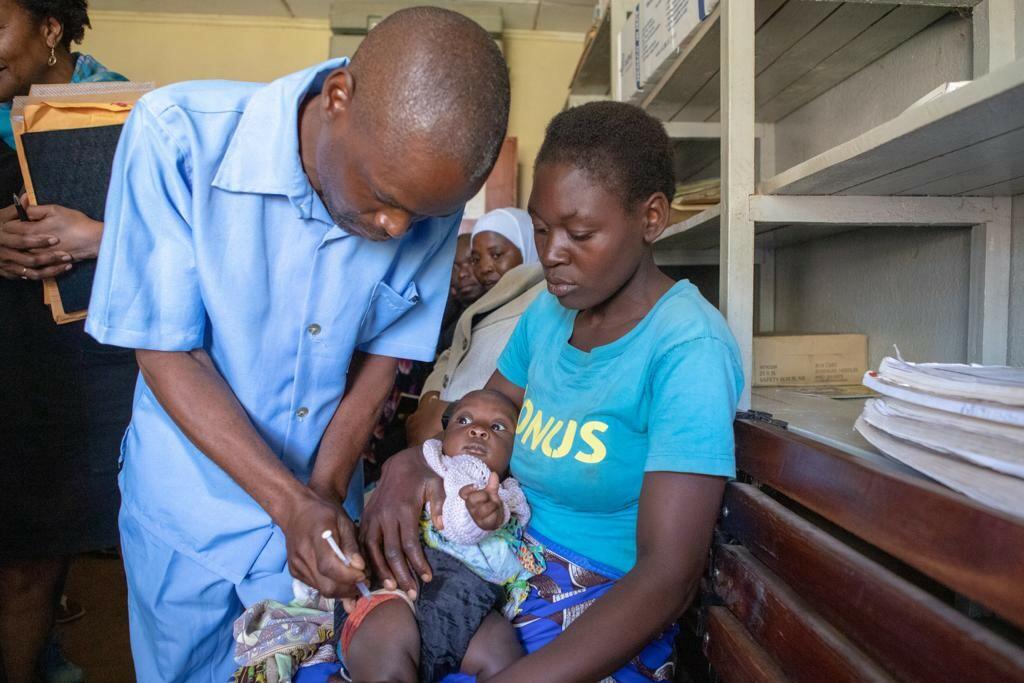
The Malawi-Liverpool-Wellcome (MLW) Clinical Research Programme, of which LSTM is a partner, is proud to be taking part in the pilot scheme for the roll out of a new malaria vaccine, RTT.S for children, as Malawi becomes the first country to vaccinate under two year olds against the disease.
Dr Latif O Ndeketa, a principal research associate at MLW, said: “The RTS,S malaria vaccine launch is a historical moment not only for Malawi but for the entire malaria community. We, at Malawi-Liverpool-Wellcome Trust, are excited to be part of a group of research institutes that is tasked with the evaluation of the vaccine.”
Malaria remains one of the world’s leading killers. Most of these deaths are in Africa, where more than 250,000 children die from the disease every year. Children under 5 are at greatest risk of its life-threatening complications. Worldwide, malaria kills 435,000 people a year, most of them children.
The actions of the Government of Malawi have been welcomed by the WHO, who have coordinated the pilot, which will be rolled out in Ghana and Kenya later this year. RTT,S is the first, and to date only, vaccine that has demonstrated it can significantly reduce malaria in children. The project is being run with in-country and international partners. Including PATH, a non-profit organisation and GSK, who have developed and manufactured the vaccine, donating up to 10 million doses for the pilot.
LSTM’s Dean of Biological Sciences, Professor Alister Craig, was asked to comment on the announcement of the vaccine earlier this week. “The vaccine is a complementary malaria control tool – to be added to the core package of WHO-recommended measures for malaria prevention, including the routine use of insecticide-treated bed nets, and indoor spraying with insecticides." With the vaccine shown in trials to prevent 4 out of every 10 malaria episodes in young children, he said: “It’s an imperfect vaccine but immunizing young children still has the potential to save tens of thousands of lives”.